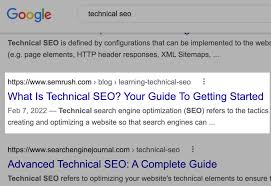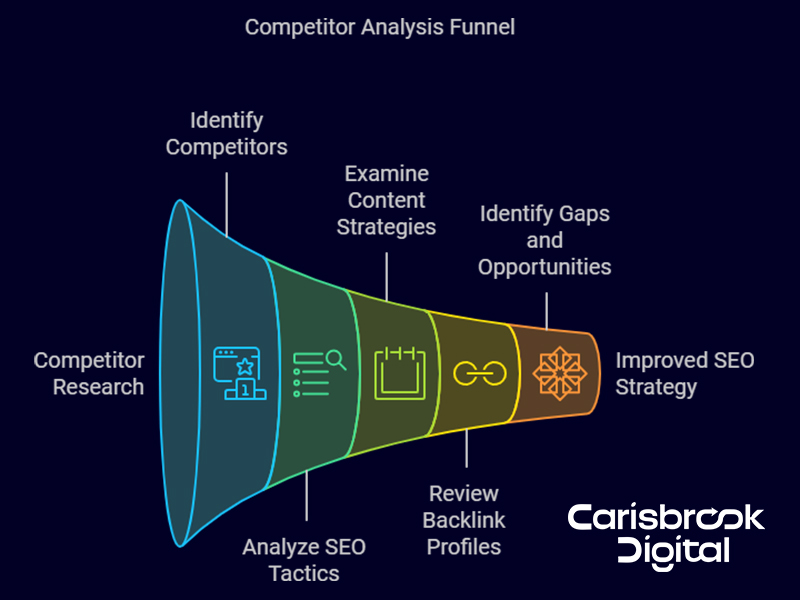Mastering Your Website’s Performance: The Ultimate Guide to SEO Site Checkup
SEO Site Checkup: The Key to Optimising Your Website
Ensuring that your website is optimised for search engines is crucial in today’s digital landscape. One effective way to improve your site’s SEO performance is through regular site checkups. An SEO site checkup involves a comprehensive analysis of various aspects of your website to identify areas for improvement and enhance its visibility on search engine results pages.
Key Benefits of an SEO Site Checkup:
- Identifying Technical Issues: A thorough site checkup can uncover technical issues such as broken links, slow loading times, or mobile responsiveness issues that may be hindering your site’s performance.
- Optimising On-Page Elements: By analysing on-page elements like meta tags, headings, and content quality, an SEO site checkup can help you enhance the relevance and readability of your web pages for both users and search engines.
- Evaluating Backlink Profile: Checking the quality and quantity of backlinks pointing to your site is essential for building authority and trust with search engines. An SEO site checkup can assess your backlink profile and suggest strategies for improvement.
- Keyword Analysis: Understanding how well your website ranks for target keywords is vital for driving organic traffic. An SEO site checkup can provide insights into keyword performance and recommend adjustments to improve ranking positions.
How to Conduct an Effective SEO Site Checkup:
To perform a comprehensive SEO site checkup, consider the following steps:
- Crawl Your Website: Utilise tools like Screaming Frog or Google Search Console to crawl your website and identify technical issues, duplicate content, or missing meta tags.
- Analyse On-Page Elements: Review meta titles, descriptions, headings, and image alt text to ensure they are optimised with relevant keywords and are compelling for users.
- Evaluate Backlink Profile: Use tools like Ahrefs or Moz to assess the quality of backlinks pointing to your site and identify opportunities for acquiring new high-quality links.
- Monitor Keyword Performance: Track keyword rankings using tools like SEMrush or Rank Tracker to understand how well your target keywords are performing and make adjustments as needed.
Essential FAQs on Conducting an SEO Site Checkup: A Comprehensive Guide
- What is an SEO site checkup?
- Why is an SEO site checkup important for my website?
- What are the key benefits of conducting an SEO site checkup?
- How often should I perform an SEO site checkup?
- What tools can I use to conduct an SEO site checkup?
- What are the common issues that an SEO site checkup can identify?
- How can an SEO site checkup help improve my search engine rankings?
- Is it necessary to hire a professional for an SEO site checkup, or can I do it myself?
- What steps should I take after completing an SEO site checkup to improve my website’s performance?
What is an SEO site checkup?
An SEO site checkup is a comprehensive evaluation process that analyses various aspects of a website to assess its search engine optimisation (SEO) performance. This thorough examination aims to identify technical issues, on-page elements, backlink profiles, and keyword strategies that may impact the website’s visibility and ranking on search engine results pages. By conducting an SEO site checkup, website owners can gain valuable insights into areas for improvement and implement tailored strategies to enhance their online presence and attract organic traffic effectively.
Why is an SEO site checkup important for my website?
Conducting an SEO site checkup is vital for your website’s success as it helps identify and address various factors that can impact your search engine visibility and overall online performance. By regularly assessing your site’s SEO health, you can uncover technical issues, improve on-page elements, evaluate your backlink profile, and refine your keyword strategy. This proactive approach not only enhances your website’s chances of ranking higher in search results but also ensures a better user experience, increased organic traffic, and ultimately, improved business outcomes. In essence, an SEO site checkup is a strategic investment that empowers you to optimise your website effectively and stay competitive in the ever-evolving digital landscape.
What are the key benefits of conducting an SEO site checkup?
Conducting an SEO site checkup offers a myriad of benefits for website owners looking to enhance their online presence. By performing a thorough analysis of various aspects of a website, such as technical issues, on-page elements, backlink profile, and keyword performance, businesses can identify areas for improvement and optimisation. This process helps in uncovering hidden issues that may be impacting the site’s visibility on search engine results pages and provides valuable insights for enhancing user experience, increasing organic traffic, and improving search engine rankings. Ultimately, conducting an SEO site checkup is key to ensuring that a website is well-optimised to meet the evolving demands of search engines and users alike.
How often should I perform an SEO site checkup?
Performing an SEO site checkup regularly is essential to maintain the health and performance of your website. The frequency of conducting an SEO site checkup can vary depending on factors such as the size of your website, the level of competition in your industry, and the rate of content updates. As a general guideline, it is recommended to perform an SEO site checkup at least once every quarter to ensure that your website remains optimised for search engines and user experience. Regular monitoring and adjustments based on the findings of these checkups can help you stay ahead in the competitive online landscape and drive continuous improvements in your website’s SEO performance.
What tools can I use to conduct an SEO site checkup?
When it comes to conducting an SEO site checkup, there are several tools available that can help you analyse and optimise your website’s performance. Popular tools like Screaming Frog, Google Search Console, Ahrefs, SEMrush, and Moz offer comprehensive features for evaluating technical issues, on-page elements, backlink profiles, and keyword performance. These tools provide valuable insights and data to identify areas for improvement and enhance your website’s visibility on search engine results pages. By utilising a combination of these tools, you can effectively conduct an in-depth SEO site checkup to boost your site’s SEO effectiveness and drive organic traffic.
What are the common issues that an SEO site checkup can identify?
An SEO site checkup is a valuable process that can uncover a range of common issues affecting a website’s search engine optimisation. Some of the key issues that an SEO site checkup can identify include technical issues like broken links, slow loading times, and mobile responsiveness problems. Additionally, it can highlight on-page elements such as missing meta tags, poorly structured content, and inadequate keyword usage. Furthermore, an SEO site checkup may reveal issues with the website’s backlink profile, including low-quality or spammy backlinks that could harm its credibility with search engines. By addressing these identified issues through an SEO site checkup, businesses can significantly improve their website’s performance and visibility in search engine results.
How can an SEO site checkup help improve my search engine rankings?
An SEO site checkup can significantly enhance your search engine rankings by identifying and addressing key factors that impact your website’s visibility and performance. By conducting a thorough analysis of technical issues, on-page elements, backlink profile, and keyword performance, an SEO site checkup can uncover areas for improvement and provide actionable insights to optimise your site for search engines. Addressing issues such as broken links, optimising meta tags, enhancing content quality, improving backlink quality, and refining keyword strategies can all contribute to boosting your website’s relevance and authority in the eyes of search engines, ultimately leading to improved search engine rankings and increased organic traffic.
Is it necessary to hire a professional for an SEO site checkup, or can I do it myself?
When it comes to the question of whether to hire a professional for an SEO site checkup or undertake the task yourself, the answer depends on your level of expertise and resources. While conducting a basic site checkup can be done independently using online tools and resources, hiring a professional for an SEO site checkup offers several advantages. An experienced SEO specialist can provide in-depth analysis, identify nuanced issues, and offer tailored recommendations to optimise your website effectively. Additionally, professionals stay updated on industry trends and best practices, ensuring that your site receives comprehensive and up-to-date optimisation. Ultimately, the decision between self-assessment and professional assistance should be based on your goals, budget, and the complexity of your website’s SEO needs.
What steps should I take after completing an SEO site checkup to improve my website’s performance?
After completing an SEO site checkup, it is essential to take proactive steps to enhance your website’s performance and visibility. Once you have identified areas for improvement, consider implementing the following strategies: address any technical issues uncovered during the checkup, optimise on-page elements such as meta tags and content quality, work on enhancing your backlink profile by acquiring high-quality links, and continuously monitor keyword performance to make necessary adjustments. By taking these steps post-checkup, you can effectively boost your website’s SEO performance and attract more organic traffic to your site.









